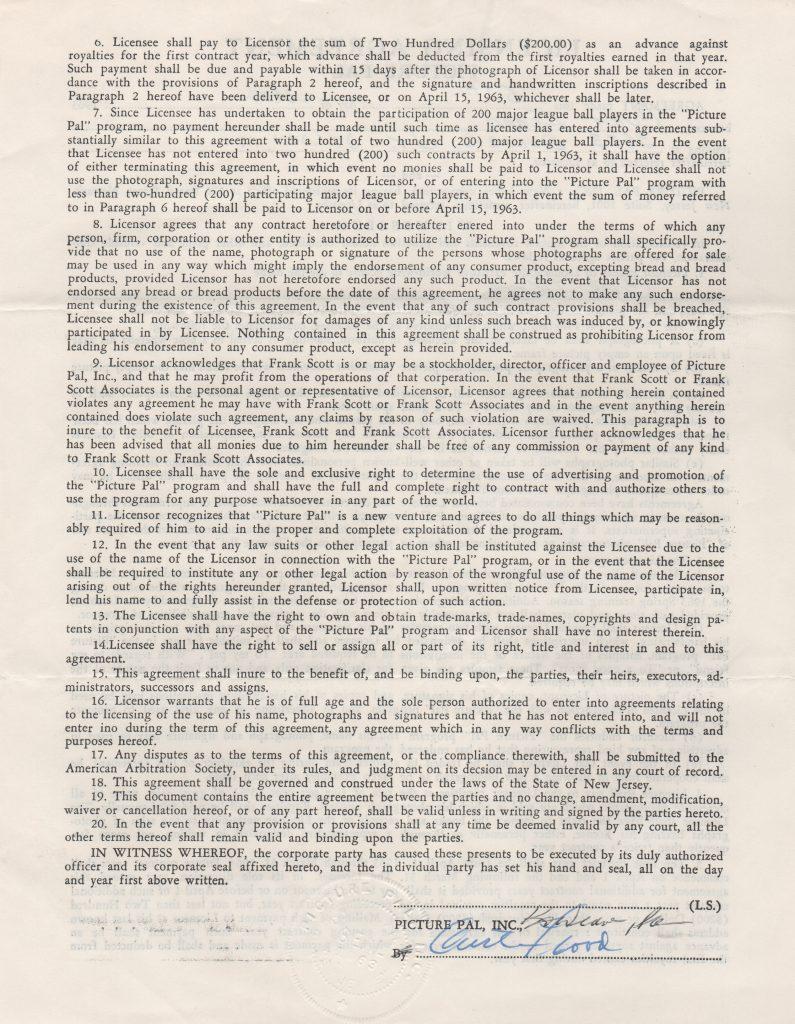
On October 7, 1969 the Cardinals traded Curt Flood to Philadelphia. The centerfielder refused to report to his new team. By doing so, he stood to lose $100,000.
Flood explained his actions in a Christmas Eve letter to Commissioner Bowie Kuhn a letter.
“After twelve years in the major leagues, I do not feel I am a piece of property to be bought and sold irrespective of my wishes. I believe that any system which produces that result violates my basic rights as a citizen and is inconsistent with the laws of the United States and of the several States.
“It is my desire to play baseball in 1970, and I am capable of playing. I have received a contract offer from the Philadelphia club, but I believe I have the right to consider offers from other clubs before making any decision. I, therefore, request that you make known to all Major League clubs my feelings in this matter, and advise them of my availability for the 1970 season.”
Kuhn denied Flood’s request for free-agency citing the reserve clause in every big league contract. Flood filed a $1M lawsuit against Kuhn and Major League Baseball, citing a violation of federal antitrust laws.
The case made its way to the US Supreme Court. On June 19, 1972 they ruled in favor of Kuhn and Baseball. Though the case didn’t immediately change the game, it emboldened the players’ union to eliminate the reserve clause.
In December, 1975 the clause was struck down in a case involving Andy Messersmith and Dave McNally. Six months later the union and the owners forged an agreement that included free agency.
In 1998 the Curt Flood Act was signed into law by President Bill Clinton. It did exactly what Flood pushed for – it severely limited baseball’s antitrust status and limited owners’ control over contracts and careers of the players.
Baseball now has the Curt Flood Rule, also called the 10/5 Rule. Players with a team for five consecutive seasons and in the league for a decade must give their consent to be traded.
Flood changed the game.
Shown here is the reverse of the contract between Flood and PicturePal. The centerfielder and player advocacy trailblazer signed it at the bottom.
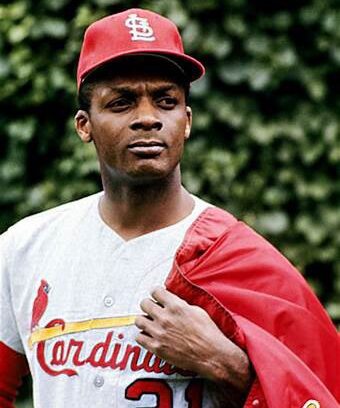
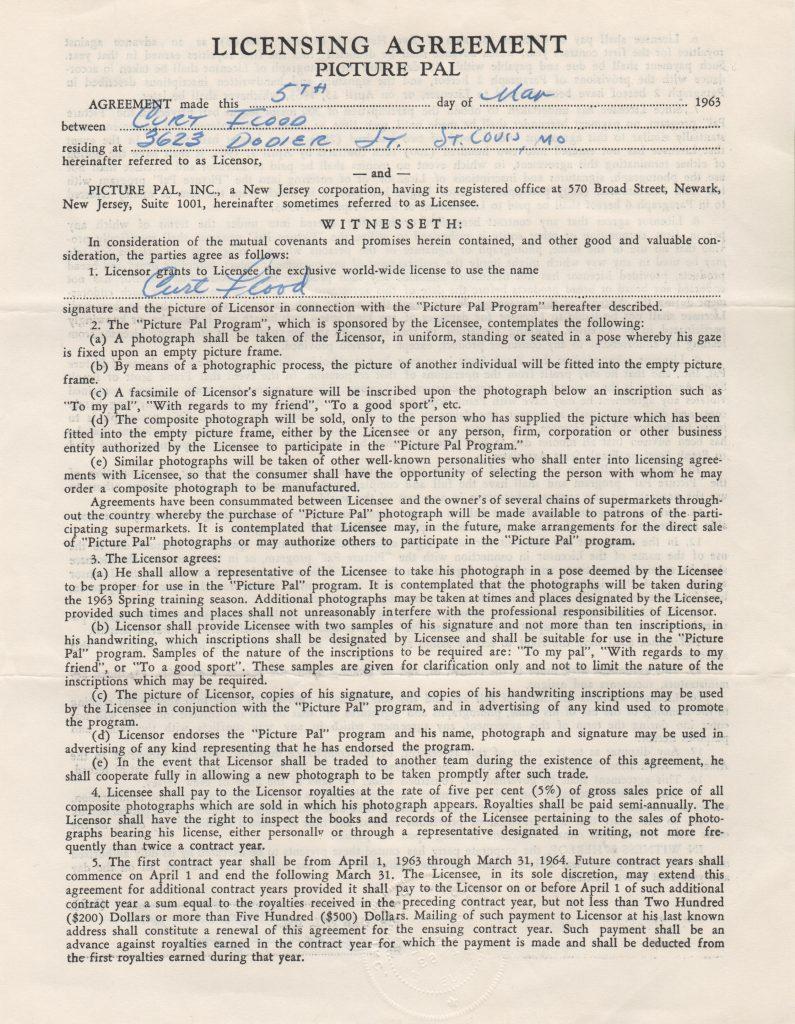

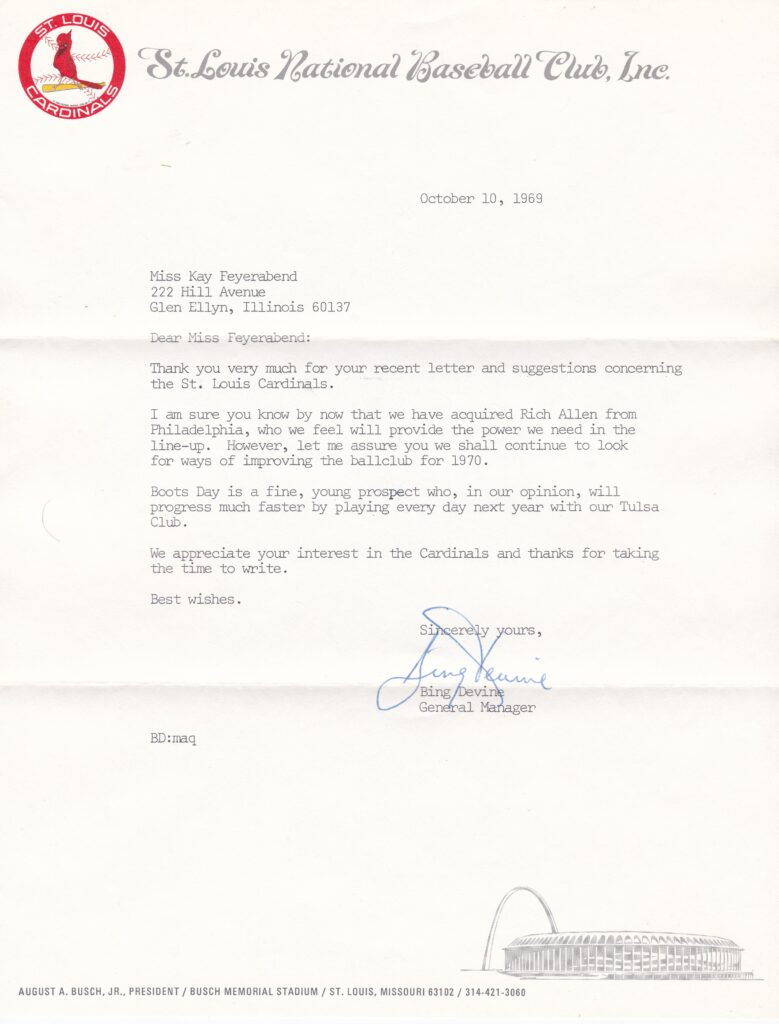
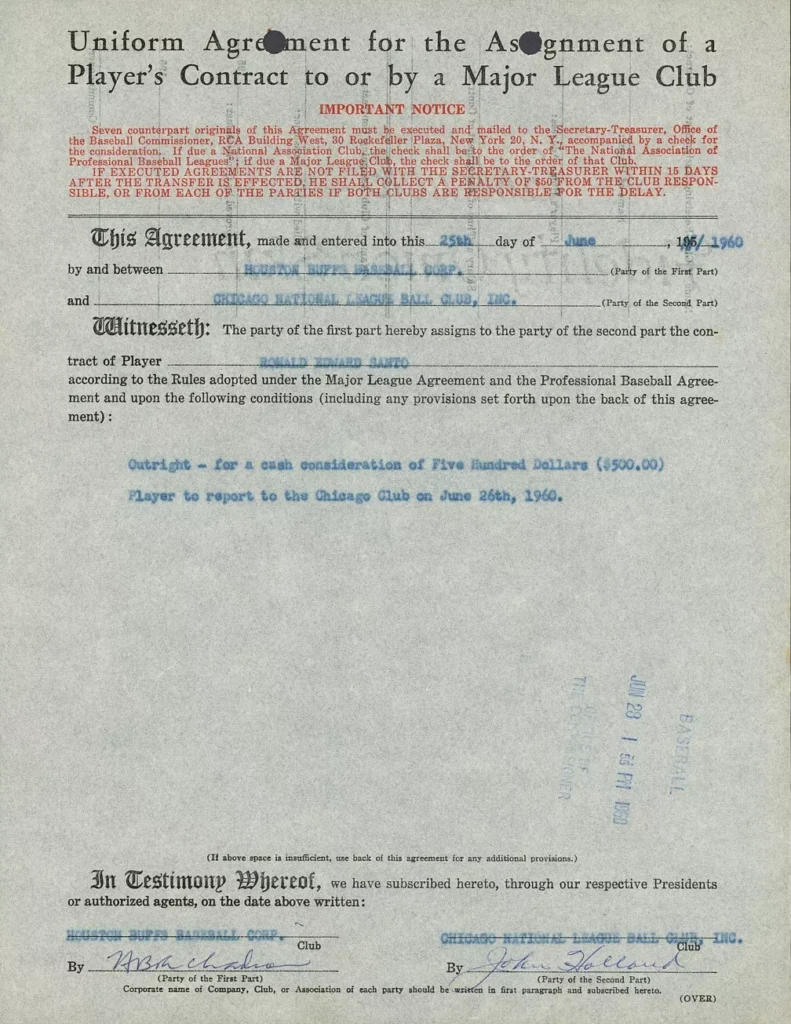
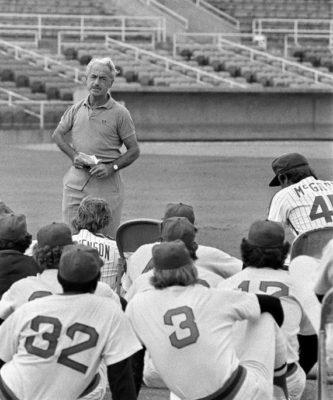
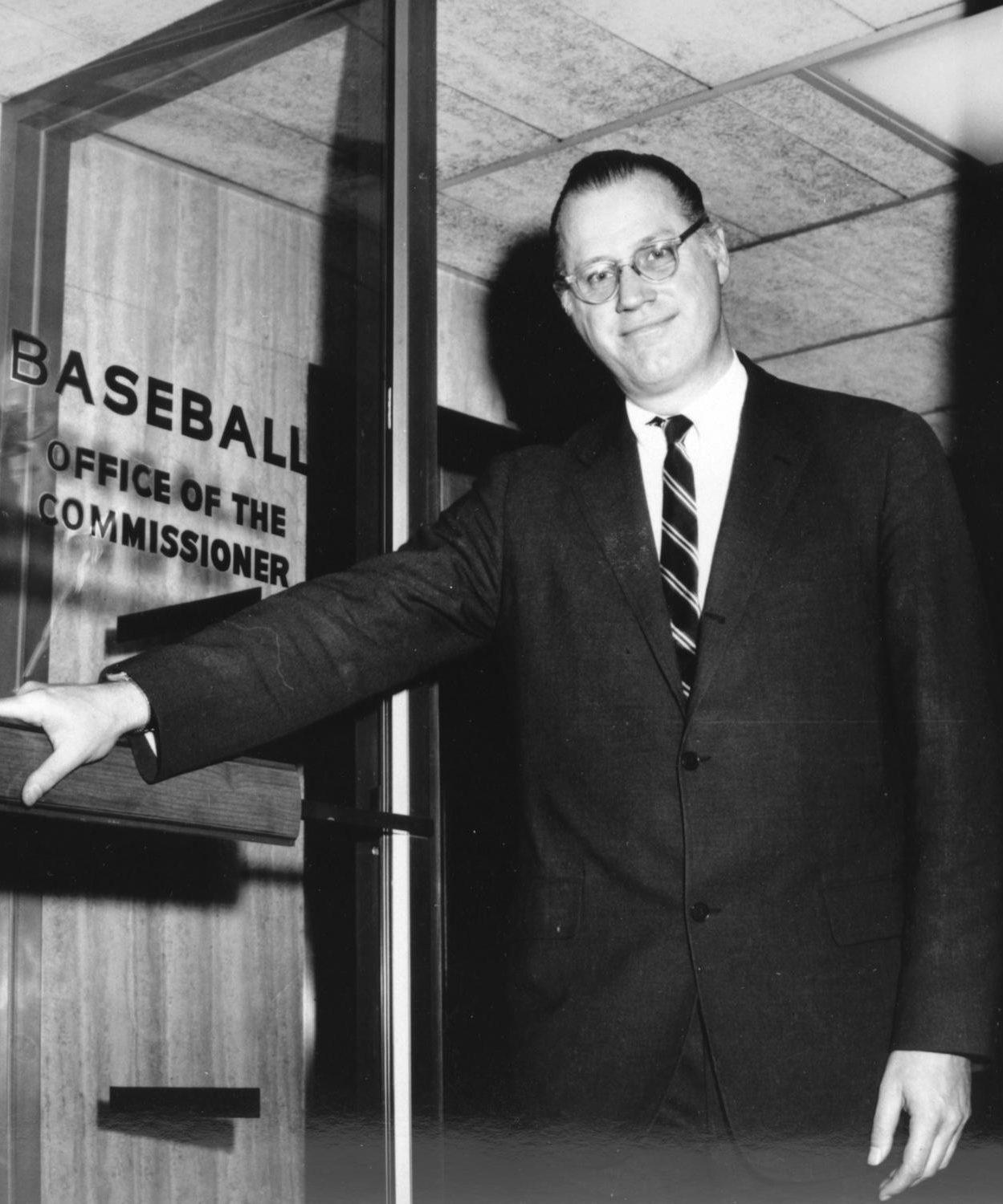
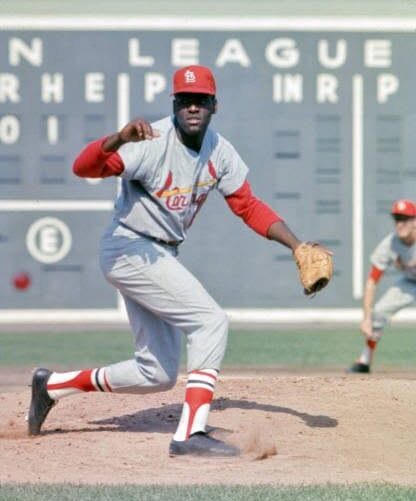
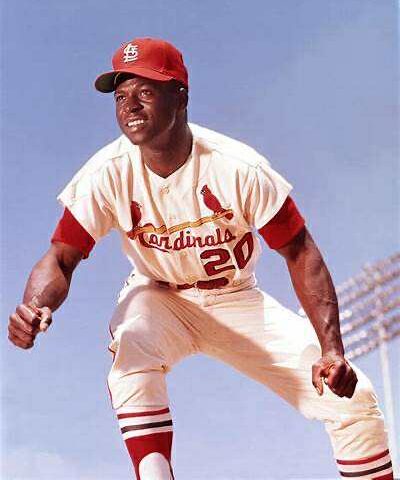
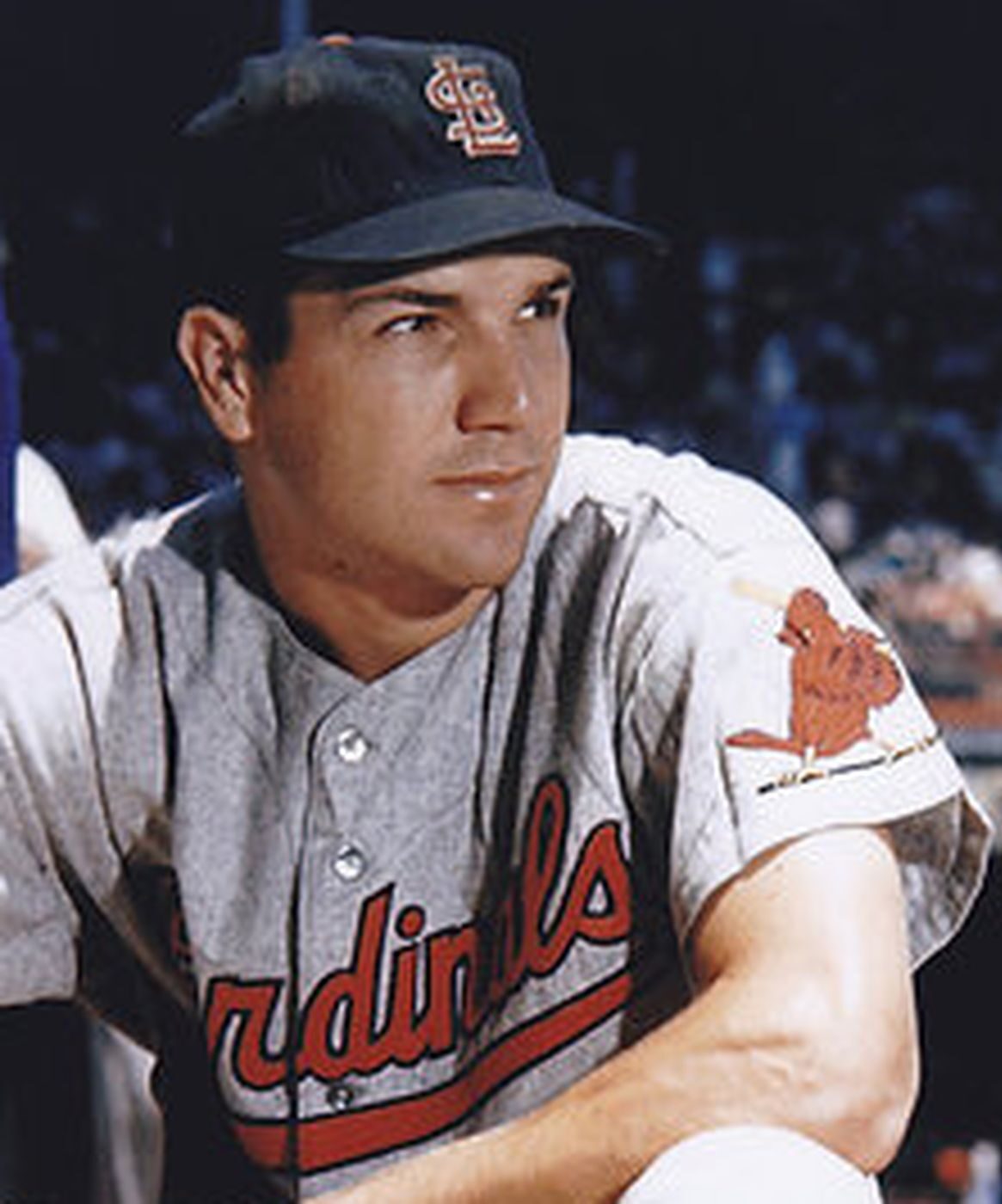
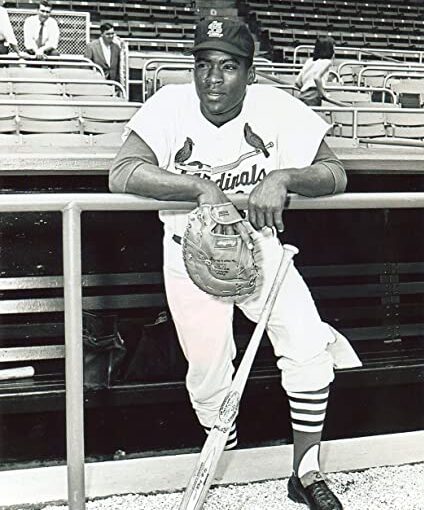
12 gold gloves? His landmark challenge of the reserve clause ended his career. He came up with the reds and was traded to the cardinals because they didn’t want a trio of starting black players in the outfield (Robinson and Pinson)
I believe the MLB Players Union should pay a stipend each year to every descendant of Curt Flood